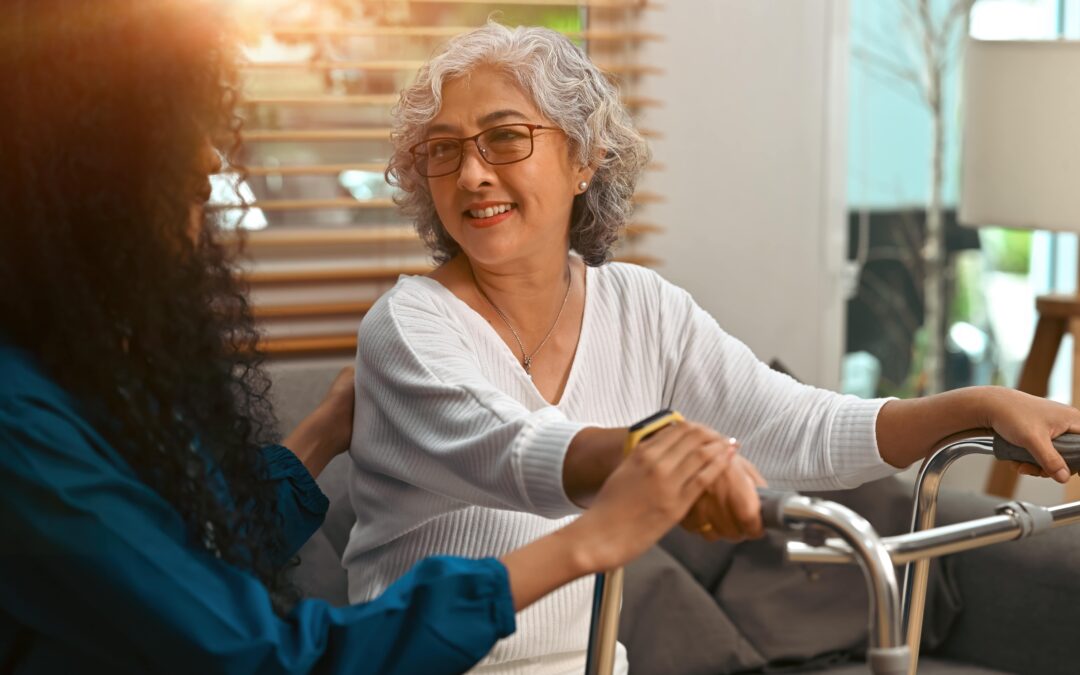Stroke rehabilitation is a crucial part of recovery, aiming to help stroke survivors regain lost functions and adjust to new ways of living. The journey is multidimensional, involving a combination of speech therapy, physical therapy, and occupational therapy, among other interventions. This blog explores the various therapeutic approaches and the continuum of care that guides stroke patients from the acute phase to long-term recovery.
The Continuum of Care in Stroke Rehabilitation
The rehabilitation journey begins almost immediately after the initial stroke treatment and can continue for months or even years, depending on the severity of the stroke. The continuum of care is typically divided into several phases:
- Acute Care: This phase occurs in the hospital immediately after a stroke. The focus is on stabilizing the patient, preventing further complications, and assessing the level of impairment. Rehabilitation usually begins here, often within 24-48 hours, focusing on basic mobility and self-care.
- Post-Acute Care: Once the patient is stable, they transition to a rehabilitation facility, outpatient therapy, or home-based care. The intensity and type of rehabilitation depend on the patient’s needs, which are determined through a comprehensive evaluation.
- Long-Term Recovery and Community Reintegration: Rehabilitation continues as patients return home or to community-based care. The focus shifts to adapting to everyday life, managing residual disabilities, and preventing secondary complications. Support groups, continued therapy, and caregiver education play significant roles during this phase.
Key Therapy Interventions in Stroke Rehabilitation
Physical Therapy (PT): Restoring Mobility and Strength
Physical therapy is the cornerstone of stroke rehabilitation, focusing on improving mobility, strength, balance, and coordination. PT helps stroke survivors relearn movements like walking, standing, and sitting.
- Gait Training: Physical therapists help patients regain their ability to walk using techniques like treadmill training, body-weight-supported therapy, and strength exercises.
- Balance Exercises: Stroke often affects balance, leading to falls. Balance training helps restore stability through exercises and the use of assistive devices.
- Range of Motion and Strengthening Exercises: Therapists work on regaining strength and flexibility, especially in affected limbs, through targeted exercises that promote muscle reactivation and joint mobility.
Occupational Therapy (OT): Regaining Independence in Daily Activities
Occupational therapy is vital for helping stroke survivors return to everyday activities, including dressing, eating, and bathing. OT focuses on developing fine motor skills, improving hand-eye coordination, and adapting tasks to the patient’s current abilities.
- Self-Care Training: Therapists teach patients techniques and use adaptive tools to regain independence in personal care activities.
- Home and Work Modifications: OT also involves assessing and modifying the home or workplace to make it more accessible and safer for the patient.
- Cognitive Rehabilitation: For patients with cognitive deficits, OT addresses issues like memory, attention, problem-solving, and task sequencing to enhance independence.
Speech and Language Therapy: Rebuilding Communication and Swallowing Skills
Speech and language therapy is crucial for stroke survivors who have communication or swallowing difficulties. These challenges arise due to damage to specific areas of the brain responsible for speech, language, and swallowing.
- Aphasia Therapy: Aphasia, a common post-stroke condition, affects the ability to speak, understand, read, or write. Speech-language pathologists (SLPs) use tailored exercises and techniques to help rebuild communication skills, often incorporating visual aids and interactive exercises.
- Dysarthria and Voice Therapy: For those with weakened or uncoordinated speech muscles, therapists work on improving articulation, speech clarity, and breath control.
- Swallowing Therapy (Dysphagia Management): Swallowing difficulties can lead to choking and malnutrition. SLPs provide exercises to strengthen the muscles involved in swallowing and recommend diet modifications to ensure safe eating.
The Role of Integrated Care and Collaboration
Effective stroke rehabilitation requires a collaborative approach, often involving a team of professionals working closely together. This team may include neurologists, physiatrists, physical therapists, occupational therapists, speech-language pathologists, nurses, and social workers. They create individualized rehabilitation plans, continually reassess progress, and adjust interventions based on evolving needs.
The Psychological and Emotional Aspects of Stroke Rehabilitation
The emotional toll of a stroke can be as challenging as the physical effects. Many patients experience depression, anxiety, or frustration as they navigate recovery. Integrated care addresses these aspects through:
- Psychological Counseling: Therapy helps patients process their emotions and develop coping strategies.
- Support Groups: Joining a support group provides a sense of community and shared experience, which can be immensely helpful for both patients and their caregivers.
- Family and Caregiver Education: Rehabilitation also extends to training caregivers on how to support recovery, manage challenges, and encourage independence.
Long-Term Recovery: Adapting to Life Post-Stroke
Recovery doesn’t end when formal rehabilitation stops. Ongoing therapy, fitness programs, and healthy lifestyle choices are crucial for maintaining gains and preventing future strokes. Regular check-ins with healthcare providers, continued exercise, and staying socially engaged can significantly improve quality of life in the long term.
Ready to Begin Your Rehabilitation Journey?
If you or a loved one is recovering from a stroke, starting rehabilitation as soon as possible is essential. The team at Insight Chicago Rehabilitation Department offers specialized care tailored to meet each patient’s unique needs. From physical therapy to speech and occupational therapy, their multidisciplinary approach ensures comprehensive and coordinated care at every stage of recovery.
Take the first step today. Schedule your appointment by calling (312) 567-2273. Whether you’re in the acute phase or looking for ongoing support, Insight Chicago is here to help you regain independence and quality of life.


Recent Comments